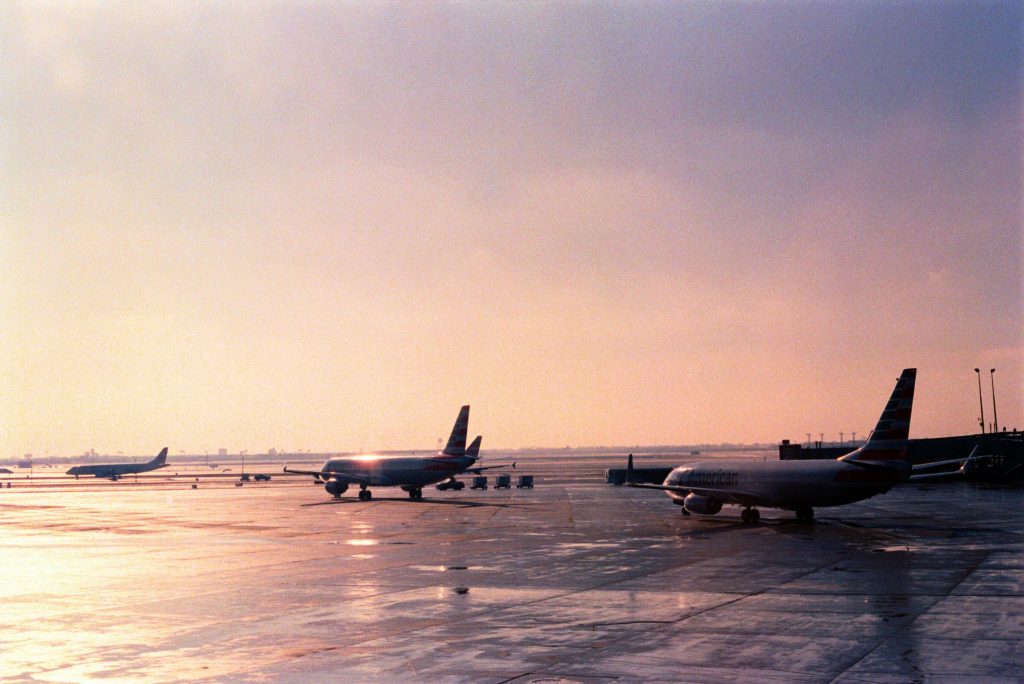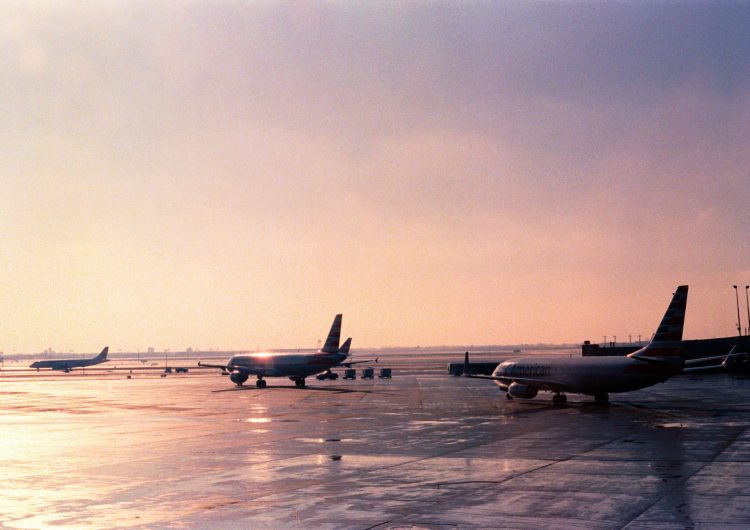
With Congress’ attention focused on the upcoming Supreme Court confirmation hearings, it may come as a surprise that the airline industry is still pressing hard for another financial bailout. Congress and U.S. taxpayers would be well advised to avoid such a folly. The COVID-19 Pandemic has caused considerable disruption throughout the global economy. Many industries have been shaken to their core. Bankruptcies have felled once-corporate titans across all sectors of the economy. Layoffs have ensued and unemployment has skyrocketed. Yet for reasons not fully explained, the U.S. airline industry believes that it is uniquely deserving of yet another massive financial assistance package, once again with no strings attached.
The audacity of the U.S. airline industry knows no limit. While it has surely suffered as a result of the COVID-19 Pandemic, much of the responsibility for the airline industry’s current financial distress stems from poor management and negligent corporate governance. Between 2015-2019 alone, U.S. airlines earned closed to $80 billion in profits.[1] In 2019, alone, U.S. airlines generated $196.2 billion in total operating revenue, of which $5.8 billion came from baggage fees and an additional $2.8 billion came from reservation change fees.[2] What happened to the $80 billion in profits that the airlines generated in just 4 years? Most of it was spent on stock buybacks. In fact, over a 10 year period, six major U.S. airlines spent over 96% of their free cash flow on stock buybacks.[3] Stock buybacks, as a financial engineering practice, are not inherently bad. However, when management and boards of directors prioritize stock buybacks over emergency planning, the problem becomes one of poor governance. Between 2013 and 2019, Delta Airlines spent nearly $11.5 billion in stock buybacks. Ironically, Delta’s total cost for employee salaries and benefits in 2019 was approximately $11.5 billion. Delta is not alone. American Airlines spent nearly $12.5 billion in stock buybacks during the same period. And, similar to Delta, American Airlines’ cost for employee wages and benefits was close to $12.5 billion.[4]
The airlines claim that a second bailout is needed in order to continue to pay their employees and that absent such a bailout, massive layoffs will ensure. In seeking to “hold a gun” to Congress’ head, the airline industry reveals its arrogance and loss of proper perspective. Many public companies in the U.S. accumulate cash on their balance sheets. These funds are used for acquisitions, investments and protection against the unexpected. For those companies that do not wish to “self-insure” against unexpected events, they buy insurance. The airlines would have the American taxpayer believe that the COVID-19 Pandemic was unforeseeable. However, this is quite misleading. Airlines in other major countries had previously confronted disruption from SARS, Swine Flu, MERS and other disruptive outbreaks. While it is true that the precise timing of the COVID-19 Pandemic could not have been reasonably predicted, it is not unreasonable to think that a major public health crisis could impact massive parts of the U.S. economy. In fact, global insurance companies have been selling parametric insurance policies for years – policies that would have covered against pandemic-related losses. A parametric insurance policy insures against low-frequency, high severity losses (eg. Earthquakes, natural disasters, etc). In December 2018, Aon marketed a parametric insurance policy to the hospitality sector that would cover against losses arising from massive disruptions to the travel sector (eg. Grounding of airplanes, etc)[5]. Did any of the U.S. airlines now seeking a bailout pursue the purchase of such insurance? I suspect that we all know the answer to the question without even asking.
Bailouts introduce the problem of moral hazard to corporate boardrooms. And once the board is infected with moral hazard, it is hard to find a cure. Moral hazard leads executives and board members to abrogate their fiduciary duties because they believe that no matter how bad the outcome might be, someone else will cover the losses. This should not be an acceptable business practice and should not be behavior that the government rewards. In the aftermath of the 2008 financial crisis, financial institutions received hundreds of billions of dollars in government aid. This aid was given in exchange for preferred equity interests, corporate governance restrictions and other regulatory changes to how the financial institutions would operate going forward. This resulted in the financial assistance being less of an aid package and more of an investment – an investment from which the U.S. Treasury handsomely profited. Similarly, the federal government in 2008 provided $80 billion in emergency loans to General Motors and Chrysler. All but $9 billion was repaid as the automakers reorganized in bankruptcy and emerged stronger and slimmer as a result.
If Congress deems a supplemental financial package for the airline industry to be appropriate, it is imperative that any funding package impose significant restrictions on recipients together with changes in operational practices. Any financial aid package to airlines should take the form of preferred equity – similar to the practice used with financial institutions in 2008. Restrictions should be placed on executive compensation and stock buybacks so that government funds are used to maintain employment levels and not reward executives or shareholders. The boards of directors of these firms should also be reconstituted to ensure proper corporate governance. This includes representation by government oversight nominees as well as board participation by representatives of the airlines’ workforces. I would even argue that each airline board be required to include a Customer Ombudsmen to guard against the obnoxious business practices that these companies have embraced in recent years. Finally, when the preferred equity is redeemed in the future, the airlines should not be given free rein to return to their past nefarious practices. Instead, the U.S. Department of Transportation should establish Emergency Preparedness Standards for all U.S. airlines. Such standard would require airlines to maintain adequate cash reserves – or third party insurance – to guard against future business operation disruptions. Any airline failing to demonstrate compliance with such standards should be precluded from any form of stock buy-back, dividend, or change in executive compensation.
Congress is right to be concerned about the potential for layoffs as a result of continued weakness in the U.S. transportation and tourism sectors. However, the right way to address those concerns is to provide sufficient long-term funding for unemployment compensation. In fact, Congress could provide enhanced unemployment benefits for employees from certain “disproportionately impacted” industries as a way to guide such impacted employees through these difficult times. The cost of such unemployment insurance would be significantly less than the amounts sought by the airlines in this most recent bailout request. Congress need not be too worried about threats of airline bankruptcies. The top three U.S. airlines have been through bankruptcy before and have emerged stronger as a result. There is plenty of capital in the marketplace that would finance airline bankruptcy reorganizations – though likely at tougher terms that those outlined above.
Crafting a multi-billion bailout package for the airlines as an indirect mechanism for maintaining employment levels sends the wrong message to airline executives, their board of directors and other industries that might seek similar bailouts in the future. These companies have operated for years with an arrogant level of infallibility and simply cannot be permitted to continue. Airline shareholders enjoyed the benefit of years of large profits and stock buybacks. They now must absorb the loss associated with their investment in companies that exercised poor management sense and inferior corporate governance. To permit any other outcome distorts the traditional role of the shareholder and places shareholder interests ahead of not only airline employees but also the U.S. taxpayer. Such an outcome simply won’t fly.
[1] http://www.transtats.bts.gov/Fields.asp?Table_ID=295
[2] http://www.transtats.bts.gov/Fields.asp?Table_ID=295
[3] https://www.bloomberg.com/news/articles/2020-03-16/u-s-airlines-spent-96-of-free-cash-flow-on-buybacks-chart
[4] https://www.businessinsider.com/airline-stock-buybacks-versus-employee-compensation-2020-4
[5] https://www.insurancejournal.com/news/national/2020/04/03/563224.htm







